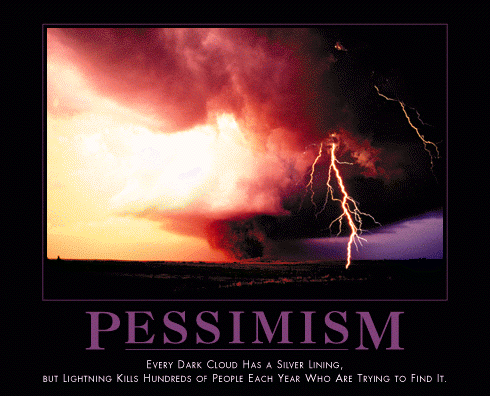 |
In Home-Lending Push, Banks Misjudged Risk
February 8, 2007 (CARRICK MOLLENKAMP - WSJ)
When the U.S. housing market was booming, HSBC Holdings PLC raced to join the party. Sensing opportunity in the bottom end of the mortgage market, the giant British bank bet big on borrowers with sketchy credit records.
Such subprime customers have always been risky, but HSBC figured it could control that risk. In 2005 and 2006, it bought billions of dollars of subprime loans from other lenders, lured by the higher interest rates they carry.
Now, the party is over for HSBC -- and for lots of other bankers who aimed to cash in on the housing boom of the first half of this decade. When interest rates ticked up and the market cooled, HSBC reached a disconcerting conclusion: Its systems for screening subprime borrowers and for assessing the default risk they posed were flawed.
AntiSpin: "Systems for screening subprime borrowers and for assessing the default risk they posed were flawed"? Shocked, we are here at the Tulip. Shocked! Do they mean if mortgage originators encourage borrowers to lie about their income in order to qualify for a suicide or liar loan, so that the agent can make a commission, that the approved yet unqualified borrower may not be able to pay? That if lenders personally had no accountability in a loan process that, maybe, the loan might not turn out so well? Who could have known?
Another "surprise" today.
 |
February 8, 2007 (Bloomberg)
Shares of U.S. mortgage lenders plunged after New Century Financial Corp. and HSBC Holdings Plc said losses from bad home loans are piling up faster than they expected.
And another.
Toll's Orders Plunge, Forecasts Larger Land Writedown
February 8, 2007 (Bloomberg)
Toll Brothers Inc., the largest U.S. luxury home builder, reported a 33 percent plunge in first-quarter orders and said expenses to cut the value of its land may almost triple.
Orders declined to 1,027 units and homebuilding revenue slid 19 percent to $1.09 billion in the three months ended Jan. 31, Horsham, Pennsylvania-based Toll said today in a preliminary earnings statement.
The fact that two out of 100 employed humans in California in 2005 were real estate brokers was, at the time, no indication of a bubble. So now we're all treated to another surprise.
Plummeting commissions thin real estate's ranks
February 7, 2007 (JEFF COLLINS - The Orange County Register)
Agents and brokers earned a combined $1.16 billion in '06, or 20% less than in '05, research firm estimates. Lost income results in closed brokerages, career changes.
"There were payroll reductions. Offices closed. All kinds of things happened to … keep (offices) running with the total loss of commission revenue," said Rich Cosner, president of a chain of nine Prudential California Realty offices in Orange County and the Inland Empire.
Well, at least the resulting Risk Polution from all of these supposedly insured bad loans won't wreck the banks. They're all insured... ultimately by you and I, the tax-payer, that is... although I'm still sketchy on where my upside was on the deal... you know, my cut if the loans hadn't "mysteriously" defaulted.
 |
February 7, 2007 (EDWARD LOTTERMAN - Pioneer Press)
The president has delivered his budget to Congress. Though Congress can be expected to weigh in with much overblown rhetoric, the appropriation bills it passes probably won't differ much from the president's proposal.
Whatever the exact outcome, one thing is clear: No school of economic thought supports the current practice of increasing the national debt, year after year. Only history will tell whether it is economists or the U.S. government that is wrong.
Perhaps the economy is OK only because oil-exporting countries and Asian central banks are willing to lend us a lot of money cheaply, temporarily staving off the results of excess borrowing.
Our grandchildren will know the answer. Perhaps they will be grateful for our current profligacy. And perhaps they won't.
That's a big ask, Ed. Ken at The Guardian's got a take on it with less "one the hand this and the other that" equivocation.
Betting with the house's money
February 7, 2007 (Kenneth Rogoff - Guardian Unlimited)
The US has been running trade deficits for over a decade - so why hasn't the dollar crashed yet?
Many people have been asking why the dollar hasn't crashed yet. Will the United States ever face a bill for the string of massive trade deficits that it has been running for more than a decade? Including interest payments on past deficits, the tab for 2006 alone was over $800 billion dollars - roughly 6.5% of US gross national product. Even more staggeringly, US borrowing now soaks up more than two-thirds of the combined excess savings of all the surplus countries in the world, including China, Japan, Germany, and the OPEC states.
As long as the status quo persists, with strong global growth and stunning macroeconomic stability, the US can continue to borrow and run trade deficits without immediate consequence. Over time, the dollar will still decline, but perhaps by no more than a couple of percent a year. Nevertheless, it is not hard to imagine scenarios in which the dollar collapses. Nuclear terrorism, a slowdown in China, or a sharp escalation of violence in the Middle East could all blow the lid off the current economic dynamic.
What other "surprises" are in store for U.S. taxpayers? Read the site over for numerous not too subtle hints.
 |
Convert #2: Michael Shedlock
Mish pre-Janszen:
Monday, April 25, 2005
Deflation is in the Cards
Contrarian Debate: Janszen vs Mish
Saturday, December 16, 2006
Mish says Deflation, Janszen Inflation
Mish today:
Thursday, February 08, 2007
Counterfeiting Money - Crime or Good Economics?
Convert #2: Jim Paplava
January 19, 2007
Forecast 2007: Disinflation then Inflation
Reads like a combination of No Deflation! Disinflation then Lots of Inflation and Recession 2007: Part III.
The idea of a disinflation followed by an inflation had not been mentioned anywhere on Financial Sense before EJ's interview with Jim. In fact, you will not find the word "disinflation" anywhere on the Financial News site before Jim's November 18, 2006 article Don't Worry, Be Happy which appears... surprise!... two months after EJ's "No Deflation! Disinflation then Lots of Inflation" piece.
Two down, one to go! Rick Ackerman and EJ face off shortly in an intellectual duel to the death* on... deflation versus Ka-Poom. Coming to iTulip and Rick's sites soon!
* Not really. As Uncle Jack says, "It's all fun and games 'til someone loses an eye." Neither Rick nor EJ are Running with Scissors: A Memoir

Comment